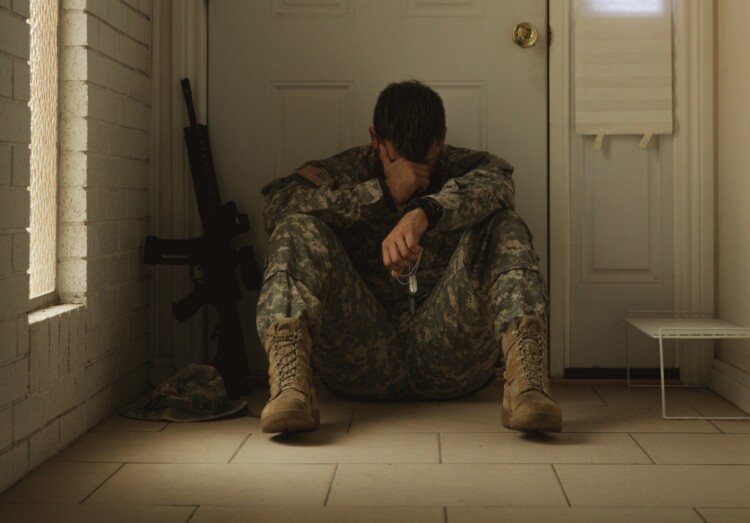“Younger service members may have less life experience and coping skills to deal with stress and trauma,” Dr. Parmar told SOFREP. “Women service members may face additional stressors such as sexual harassment, assault, or discrimination.
“Minority service members may experience racism, prejudice, or isolation within the military culture. Reserve and National Guard service members may have less access to mental health resources and support than active duty service members.”
How the Powers That Be Are Addressing Mental Health Issues in the Military
Given the prevalence of mental health issues in the military, are the powers that be taking action at all? North Carolina-based psychiatrist Dr. Harold Hong says yes, but there is still room for improvement.
“Recently, there has been an increased focus on providing better support services for service members and veterans who are dealing with mental health issues,” Dr. Hong told SOFREP.
“This includes things such as implementing more comprehensive screening processes to identify and treat potential mental health concerns, increasing access to therapy, creating robust support networks for those struggling with mental illness, and raising awareness of available resources.”
Dr. Parmar agreed and gave some specifics.
“The Defense Suicide Prevention Office was established in 2011 to coordinate suicide prevention efforts across the Department of Defense. The National Defense Authorization Act for the fiscal year 2020 included several provisions to improve mental health care and suicide prevention for service members and veterans.”
“The TRICARE program provides direct services and health benefits for eligible military personnel and their families, including mental health care. The Military OneSource program offers confidential counseling, information, and referrals for service members and their families.”
In terms of improvements, Dr. Parmar pointed out some key examples.
“The lack of standardized screening and assessment tools for mental health conditions across the military branches. The shortage of qualified and culturally competent mental health providers within and outside the military system.
“The inconsistency and variability of mental health policies and practices across different commands and units. The insufficient funding and resources for mental health research and evaluation.
“Therefore, it is essential to advocate for more support and accountability from the government and the military leadership to address these challenges and gaps.”
How Can Service Members Address Mental Health Issues Post-Service?
Right here is the more important question. How can veterans care for their mental health after spending much of their life serving their nation? Therapy is a given and a consensus response from these experts. But here are some other suggestions:
Find a Purpose
For many service members, both active and otherwise, the military was their life. It’s a similar case with a lifelong professional prizefighter who’s suddenly at a loss and left not knowing what to do after decades of competition. Many of them stay for too long and get badly beaten up in the process.
For licensed psychotherapist and D’Amore Mental Health’s Chief Clinical Officer Gary Tucker, finding a purpose and a reason to live would be a good start.
“This could include volunteering, finding paid employment or freelancing or even enrolling in college classes. Having something to look forward to can provide a sense of purpose and help veterans focus on their mental health,” he told SOFREP.
If you leave the service while still in your prime years, strenuous activities like martial arts can keep you occupied. Go to a gym, train, and establish new genuine friendships. You can also pick up on outdoor hobbies like hunting or fishing, activities that will keep you out in nature. Fortunately, Amazon has all the tools you need to get started.
Develop a Regular (Healthy) Routine
We all have our respective definitions of what ‘healthy’ is, so Tucker provided a specific description.
“Incorporating a regular exercise routine, having a well-balanced diet, and practicing good sleep hygiene can all make a big difference in managing mental health issues.”
“Even just a simple daily routine can help someone get back on their feet; this is especially important for veterans dealing with the transition out of service. Trying to adapt to the new lifestyle when being discharged can be difficult, so having a regular schedule that includes activities is essential.”
Journaling is one of the many healthy habits one can develop. The University of Rochester Medical Center pointed out some key benefits when it comes to dealing with mental health issues, which include better management of anxiety and coping mechanisms for depression, as well as stress reduction.
But many of you probably don’t know where to begin your journaling habit. As always, Amazon is an excellent place to start. Here, you’ll find a slew of options for journal notebooks catered explicitly to those doing it for the first time. For $8.99, you get a self-help notebook with some quirky artwork for the added visuals.
Connect With Fellow Veterans
As humans, we naturally find solace and comfort in people we have shared experiences with. It’s easier to make friends with the fellow Asian kid in school whose families just emigrated to the country a year ago.
Dr. Hong encourages veterans to connect with fellow veterans to make coping easier.
“It can be very beneficial for veterans to stay connected with other individuals who have served in the military, as they may be able to relate and provide valuable insight into how to address mental health concerns.”
Addressing Mental Health Issues Should Be a Top Priority
It’s 2023. Society is now more open about topics that likely won’t get any attention two decades ago. People discuss Mental health issues more openly nowadays, and it should be a priority for people susceptible to them, such as the brave men and women who fought for their country’s freedom.

It’s always the right time to talk about mental health. There should be no shame in doing so, whether or not you’re a military servicemember or veteran.











COMMENTS